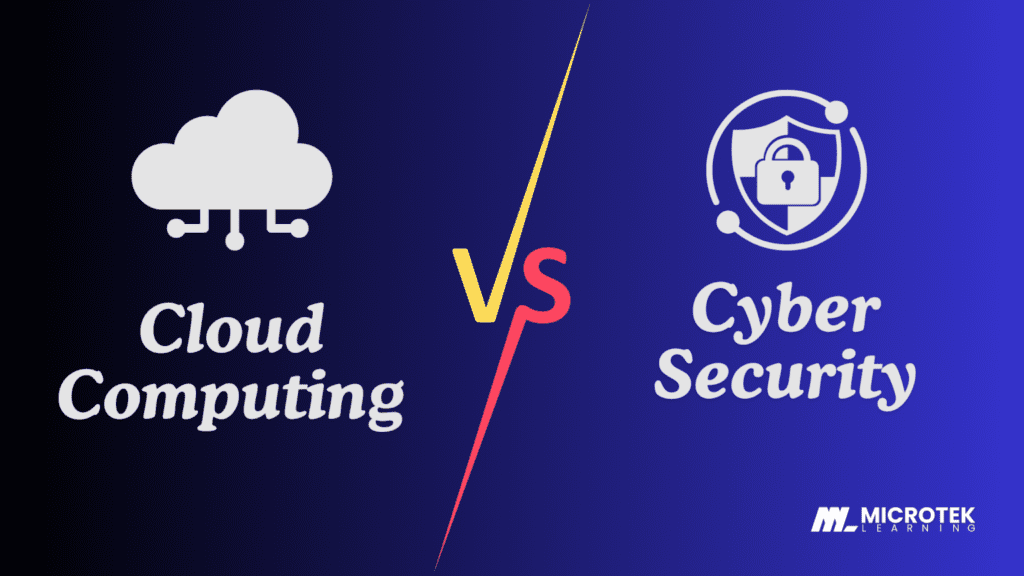Many people struggle to choose between cyber security and cloud security, and rightly so—these are two of the most in-demand specialized roles in tech today. But what are the differences? Are there any similarities? And which one will pay you more?
In this article, we’ll break down both fields, covering job roles, required skills, certifications, and career opportunities.
What is Cyber Security?
Cyber security is the practice of protecting computer systems, networks, programs, and data from digital attacks, unauthorized access, theft, or damage. The primary goals of cyber security are to ensure the confidentiality, integrity, and availability of information assets.
Key Areas of Cyber Security
- Network Security: Protecting infrastructure and communication channels from unauthorized access and attacks.
- Application Security: Ensuring that software applications are free from vulnerabilities and can withstand cyber threats.
- Information Security: Safeguarding sensitive data from unauthorized access, modification, or disclosure.
Common Cyber Security Threats
- Malware (viruses, worms, ransomware)
- Phishing (social engineering attacks)
- Denial of Service (DoS) Attacks
- Insider Threats
- AI-Powered Attacks (more sophisticated than ever)
Role of a Cyber Security Professional
Cyber security professionals are responsible for:
- Designing and implementing security controls
- Monitoring systems for breaches
- Responding to security incidents
- Conducting risk assessments
- Educating employees about security best practices
To succeed in this field, you need a strong understanding of firewalls, intrusion detection systems, encryption algorithms, and risk management techniques.
What is Cloud Security?
Cloud security focuses specifically on securing cloud computing environments. As more businesses adopt cloud services, ensuring the security of cloud-based data, applications, and infrastructure has become a top priority.
Cloud security operates under the shared responsibility model, meaning that both the cloud provider and the customer are responsible for maintaining security.
Key Areas of Cloud Security
- Data Protection: Ensuring cloud-stored data is encrypted and protected from unauthorized access.
- Access Management: Implementing authentication and authorization controls to regulate access to cloud resources.
- Compliance: Ensuring cloud deployments comply with industry standards and regulations (HIPAA, PCI DSS, GDPR).
Common Cloud Security Challenges
- Misconfigurations
- Insecure APIs
- Data Breaches
- Insider Threats
- Leaked credentials in code repositories
Role of a Cloud Security Professional
Cloud security professionals work on:
- Designing security architectures for cloud environments
- Configuring cloud security controls
- Monitoring for threats and responding to incidents
- Ensuring compliance with security regulations
Cloud security professionals need expertise in AWS, Azure, Google Cloud, identity & access management (IAM), encryption, and cloud compliance frameworks.
Cyber Security vs Cloud Security: What’s the Difference?
| Feature | Cyber Security | Cloud Security |
| Scope | Broad security across all IT systems | Security specifically for cloud environments |
| Focus | On-premises & cloud security | Cloud-based security (AWS, Azure, GCP) |
| Common Threats | Malware, phishing, DDoS, AI attacks | Misconfigurations, insecure APIs, insider threats |
| Key Skills | Firewalls, encryption, network security, risk management | Cloud architecture, IAM, compliance, cloud security frameworks |
| Certifications | Security+, CEH, CISSP | AWS Security Specialty, Azure Security Engineer, GCP Security Engineer |
| Salary Expectations | $100,000+ | $120,000+ |
Cyber security is a broader field covering security across all types of IT infrastructure (on-premises and cloud). Cloud security is a specialized subset of cyber security that focuses only on cloud environments.
Both fields require knowledge of encryption, access control, and monitoring tools, but cloud security professionals need additional expertise in cloud technologies.
Which One Should You Learn?
Consider Your Interests & Skills
- If you enjoy working with a wide range of security technologies, cyber security is a great choice.
- If you want to specialize in cloud platforms like AWS, Azure, or GCP, cloud security is the better option.
Your Background Matters
- If you have experience in networking or system administration, cyber security might be a natural progression.
- If you already work with cloud services, transitioning into cloud security makes sense.
Job Market & Salary Expectations
Both cyber security and cloud security professionals are in high demand, but cloud security specialists often earn higher salaries due to the increasing adoption of cloud technologies.
Recommended Learning Paths & Certifications
For Cyber Security:
- CompTIA Security+ – Covers foundational security concepts.
- Certified Ethical Hacker (CEH) – Focuses on ethical hacking and penetration testing.
- CISSP (Certified Information Systems Security Professional) – Advanced security certification for experienced professionals.
For Cloud Security:
- CompTIA Security+ – Essential for understanding security fundamentals.
- AWS Certified Solutions Architect – Learn cloud engineering before specializing.
- AWS Certified Security Specialty – Focuses on security best practices for AWS.
- Azure Security Engineer Associate – For Microsoft Azure security professionals.
Final Thoughts
Both cyber security and cloud security are critical fields in today’s tech landscape. While they share similar goals, cloud security is a specialized branch of cyber security that focuses on securing cloud environments.
When choosing between the two, consider:
✅ Your interests – Broad security vs. cloud specialization
✅ Your existing skills – Networking/system administration vs. cloud experience
✅ Job market trends – Cloud security often commands higher salaries
No matter which path you choose, hands-on experience is crucial. Build real-world projects, earn industry-recognized certifications, and stay updated with the latest threats and security technologies.
So, are you choosing cyber security or cloud security? Let us know in the comments!


